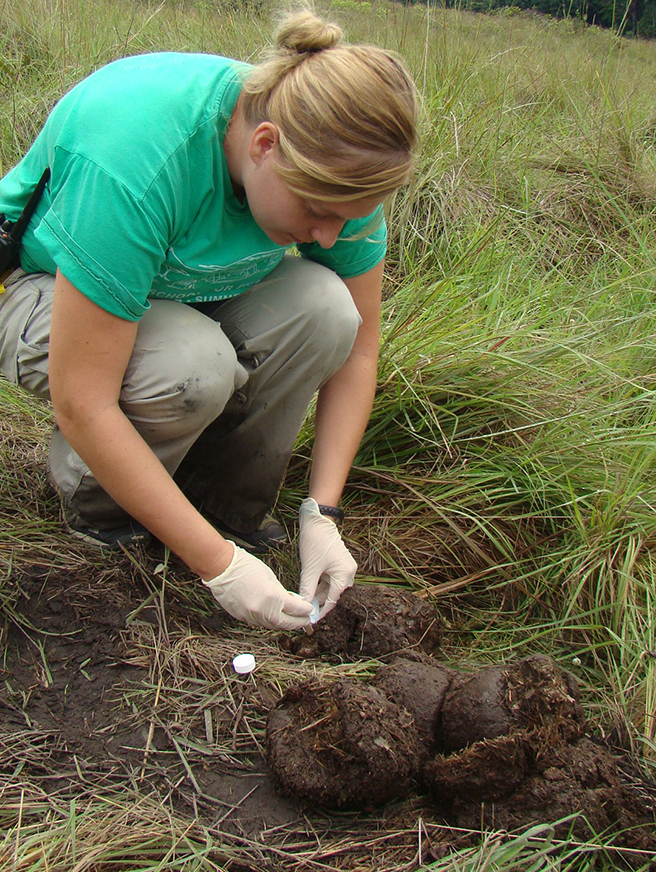I’ve received this question from several people lately – and by old, they don’t even mean old at all. The people who are asking me are usually in their mid to late 20s and 30s.
Before I answer this questions specifically, let me talk about the pathway to wildlife biology careers.
One of the biggest mistakes that aspiring wildlife biologists fall into is that they focus too much on education – they think it’s a simple linear process:
- Go to college
- Get your Master’s
- Get your Ph.D. (lots of people do this just because they can’t find a job).
They think that getting a permanent job has a lot to do with what courses you take, what school you go to, and what degrees you have.
If you are older, you might be thinking “It’s too late for me.” You think you will be in classrooms full of young students – and look (and feel) out of place.
Most aspiring wildlife biologists also make the mistake of thinking that graduate school, at least research degrees, are based on courses. They aren’t; they are based on your research. At times, courses almost feel like they get in the way of research.
The form you have selected does not exist.
In other words, graduate school is like work. You get paid a stipend and you work towards a final goal – your research project. You are (usually) not studying hard and for tests like you are in undergrad.

Focusing on education primarily is the WRONG way to look at it . If you focus solely on your education (e.g. the courses you take), I promise you will have a very hard time finding a job.
Why? Because there are now so many people with wildlife degrees – especially at the Bachelor’s level. You need something to make you stand out. What makes people stand out?
Experience!
Therefore being older can actually work towards your advantage in wildlife biology careers.
For example, in graduate school, I would say that being young actually works against you. You are seen as very green.
For instance, after I graduated, I took three years off and did three different internships. These experiences were paid and therefore like jobs.
These internships therefore gave me an advantage when applying to graduate school. Professors could see that I was experienced and had some research under my belt. I know that if I applied right away after I graduated college, I would not have been as competitive and likely would not have gotten in.
But what about people who don’t have this experience? In other words, they graduated with different degrees and want to go back to school completely for wildlife?
Yes! It is still 100% do-able!
In fact, as a graduate student starting at 25, I was one of the younger students. Most of my peers were in their late 20s, 30s, and we even had students in their 40s.
It’s never too late, and you will definitely fit in in graduate school.
If you need to back track – do you need to get another Bachelor’s degree? No. One of my friends, who is now a professor at Elon University has a degree in B.H.A. in Art and Russian Studies (Dr. Jen Hamel, you can see her CV here.). She did have to go back to get some required courses before her Ph.D., but did not need a whole new degree.
She did though get experience when she went back for her courses too. She worked in a research lab.
Wildlife biology careers are not about your age. In fact, age can work for you. Even if you don’t have experience in wildlife biology, you have life experience and work experience, and you are likely more mature. Those are all assets. If you frame your past experiences the right way, they could make you more competitive for jobs.
Therefore, you need to rethink the strategy to get into wildlife biology, which is why I recommend looking at the jobs you want now to figure out your end point. I designed the Job Tracker to help you with that.
Once you figure out your end, you can reverse engineer the experiences you need, the connections you need to make. Yes, you do need some courses and education, but it is much more about experience and your network than just your education alone.
Starter later in life though does have one thing that works against you – finances. This field does not pay well and depending on the lifestyle you want, you may not be able to afford basic things other jobs will provide for you. I go into more details about this in my book, Getting a Job in Wildlife Biology: What It’s Like and What You Need to Know.
Love this post? Share it with friends!


